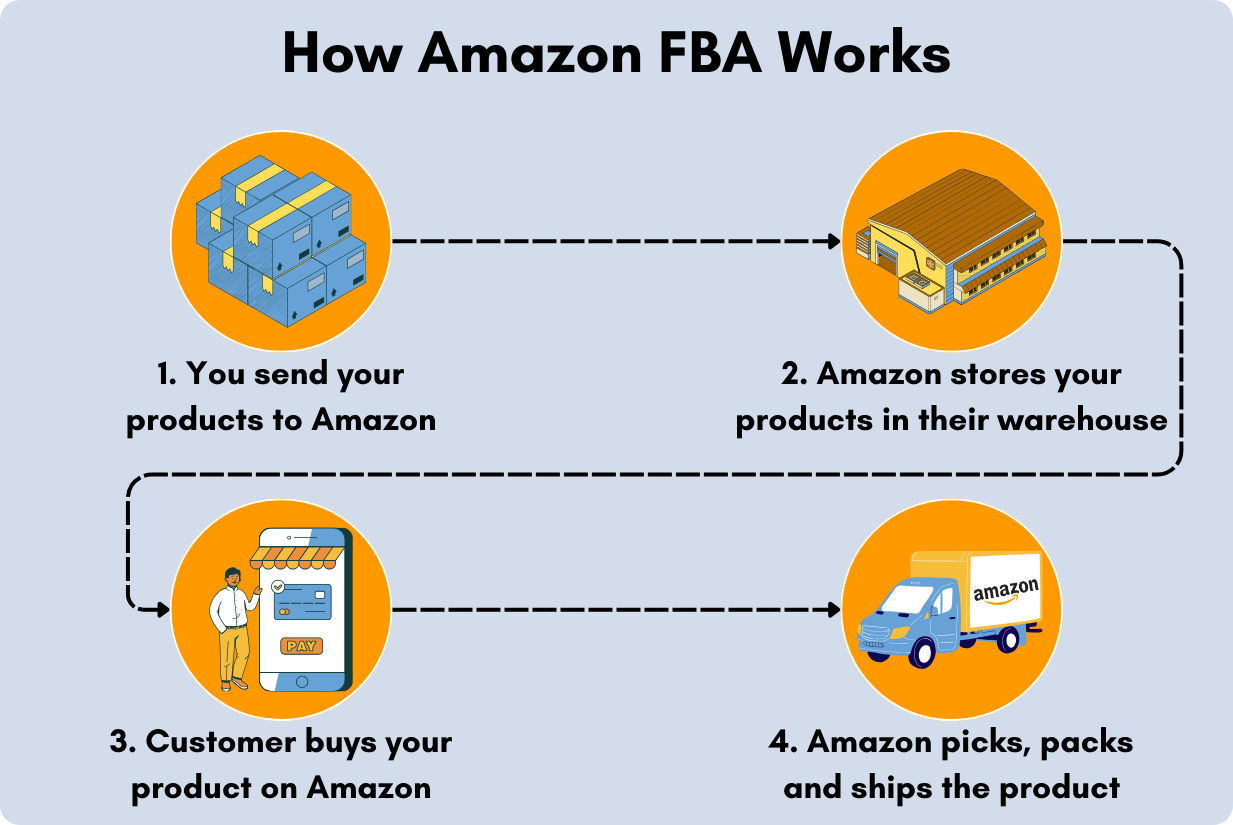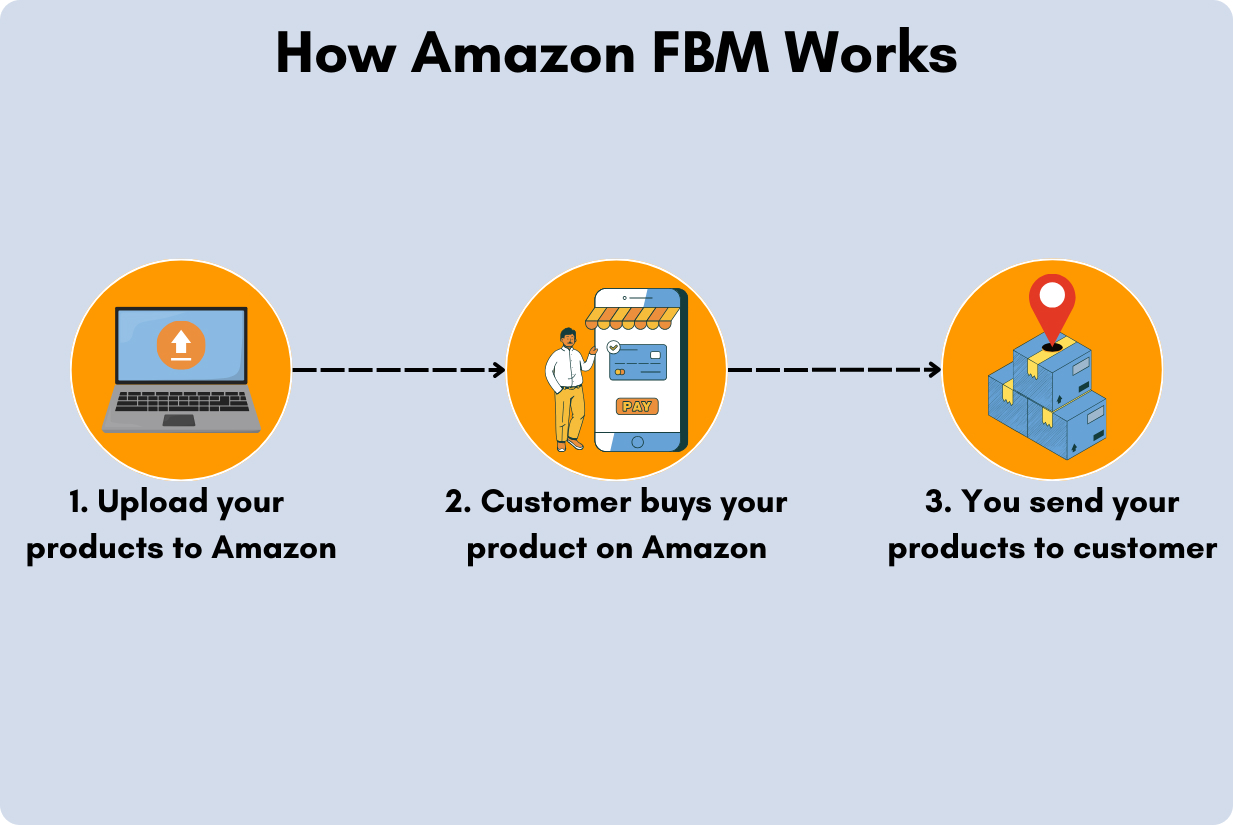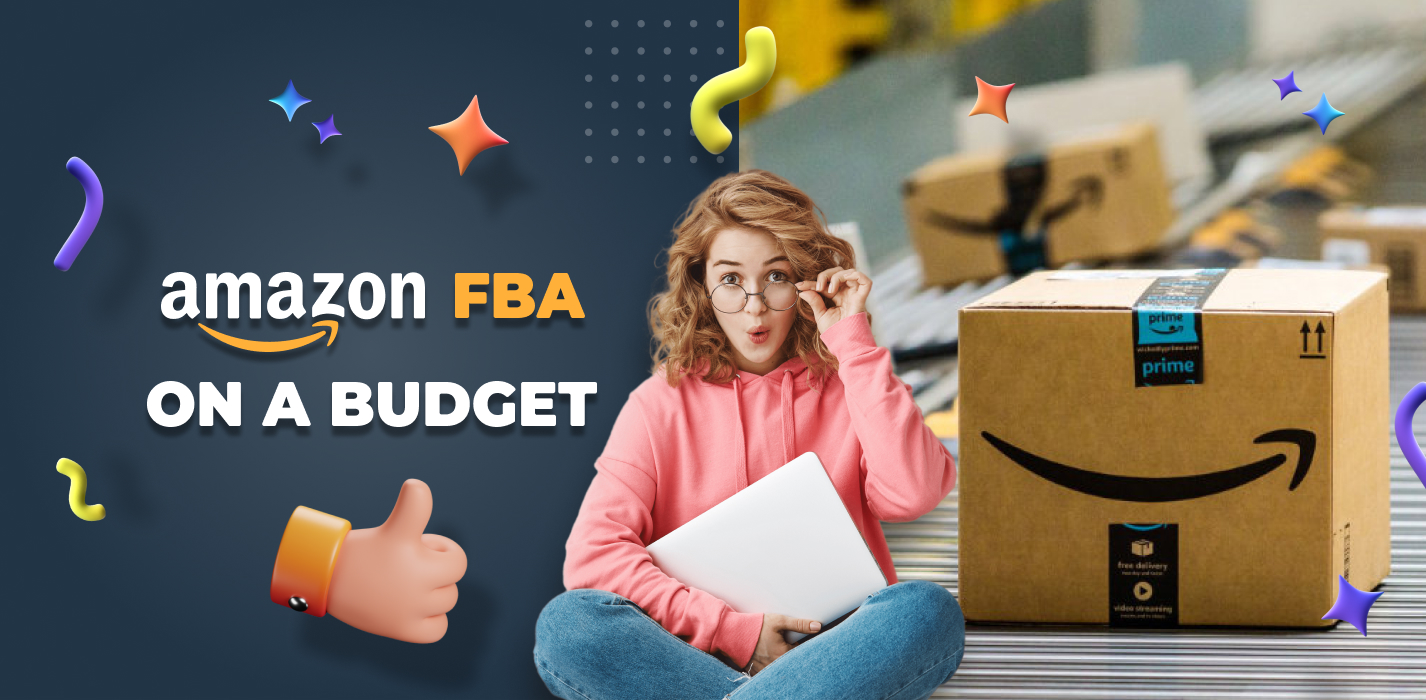With millions of active users and a global reach, Amazon offers one of the most lucrative platforms for entrepreneurs looking to sell products online. Whether you’re a seasoned seller or just starting, understanding how Amazon works and choosing the right fulfillment model can make all the difference.
In this article, we’ll break down Amazon’s key selling options, explore the benefits of using Sellvia for your business, and help you decide on the best path to success. We’ll explain Amazon FBA for beginners, let’s go!
What is Amazon?
Amazon is one of the biggest online marketplaces in the world, where millions of people shop for all kinds of products. It started in 1994 as a bookstore but has grown into a platform that sells almost everything. As a seller, you can list your products on Amazon and reach a huge audience. Plus, Amazon’s platform takes care of logistics and customer service, making it easier for you to focus on selling.
One way Amazon helps sellers manage logistics is through its Amazon FBA (Fulfillment by Amazon) service. In the next part we’ll tell you about it in more detail.
What is Amazon FBA?
Fulfillment by Amazon is a service that allows sellers to store their products in Amazon’s warehouses. Once a customer places an order, Amazon handles the picking, packing, shipping, and customer service on your behalf. It’s a popular choice for sellers who want a hands-off approach to logistics, though it comes with associated fees.

Amazon FBA Fees: How Much Does Amazon FBA Cost?
Fulfillment by Amazon provides convenience and access to Amazon’s vast marketplace, but it comes with several fees that sellers need to consider. Understanding these costs is essential for maintaining healthy profit margins and making informed decisions about your business strategy.
1. Fulfillment Fees
These fees cover the picking, packing, shipping, and customer service that Amazon provides for each order. They are based on the size and weight of your product.
- Standard-size items: Typically lower fees.
- Oversize items: Higher fees due to additional handling and shipping costs.
For example, a small standard-size item may cost around $3.22 to fulfill, while a larger item could cost $8 or more.

2. Storage Fees
Amazon charges sellers to store inventory in their warehouses. Storage fees vary depending on the time of year:
- January–September: Lower rates, around $0.75 per cubic foot.
- October–December: Higher rates due to increased demand, around $2.40 per cubic foot.
Avoid high fees by managing inventory carefully to prevent overstocking.
3. Long-Term Storage Fees
Items stored for more than 365 days incur long-term storage fees. This fee is approximately $6.90 per cubic foot or $0.15 per unit, whichever is greater. Regular inventory checks can help you avoid this charge.

4. Returns Processing Fees
For products in categories where Amazon offers free returns (e.g., clothing, shoes), sellers are charged a returns processing fee. This fee equals the fulfillment cost for that item.
5. Labeling and Prep Fees
If your products aren’t prepared according to Amazon’s requirements, you can pay Amazon to handle it. Fees for labeling, bagging, or bubble wrapping start at $0.30 per unit.
6. Referral Fees
Amazon takes a percentage of each sale, known as a referral fee. This fee starts from 8%, depending on the product category, with the average being around 15%.
How to Manage FBA Costs
- Optimize Inventory Levels: Avoid overstocking to minimize storage fees.
- Price Products Strategically: Factor in all fees to maintain profitability.
- Choose the Right Products: Focus on items with high demand and strong profit margins.
- Regularly Audit Inventory: Remove slow-moving items to prevent long-term storage fees.
By understanding and managing Amazon FBA fees, you can leverage the platform’s benefits while ensuring your business remains profitable. Always calculate these costs before listing a product to maintain healthy margins and grow your business effectively.
How to become an Amazon FBA seller
Create an Amazon selling account
1.Choose a selling plan:
- Individual plan: Free to join, but you pay $0.99 per item sold.
- Professional plan: Costs $39.99/month, allowing unlimited sales with no per-item fees.
2.Register with Amazon:
- Use your Amazon customer account email or a separate business email.
- Provide necessary details.

Enroll your Account in FBA
- Go to Seller Central and hover over the Gear icon.
- Click Account Info and then Manage.
- Select Register for FBA to complete enrollment.
Create product listings
Add your products to Amazon and specify them as FBA inventory.

Prepare products for shipment
Follow Amazon’s packing guidelines, shipping requirements, and routing instructions.
Ship products to Amazon
- Create a shipping plan through Seller Central.
- Print Amazon shipment ID labels.
- Send your products to Amazon’s fulfillment centers.
Tips for Selling on Amazon FBA
Work with a wholesaler:
This is a good option if you’re not selling unique or brand-new products.
Understand the fees:
Take time to understand Amazon FBA fees, like storage, referral, and fulfillment charges. This will help you keep your profits on track.

Choose the right products:
Stay away from products that are heavy, oversized, fragile, often returned, or hard to use. These can cause more trouble than they’re worth.
As you build your Amazon business, it’s crucial to weigh the advantages of different fulfillment models. While Amazon FBA simplifies storage and shipping, Amazon FBM, often linked with dropshipping, can be a more cost-effective option for sellers who prioritize flexibility and control.
What is Amazon FBM (dropshipping)?
Amazon FBM (Fulfillment by Merchant) is a way to sell products on Amazon where you handle the order process yourself. If you’re dropshipping, this means working with suppliers who ship products directly to your customers. You stay in charge of everything, including customer service and returns, making it a hands-on approach to selling.

Let’s look closer at the differences between Amazon FBA and Amazon FBM in the next part.
Key differences between Amazon FBA and Amazon FBM (dropshipping)
When comparing Amazon FBA (Fulfillment by Amazon) and Amazon FBM (Fulfillment by Merchant, commonly linked to dropshipping), FBM often emerges as the better choice for entrepreneurs seeking lower costs, greater control, and flexibility in scaling their businesses. Here’s why Amazon FBM can be the better option:
1. Inventory Management
Amazon FBA: You must purchase and store inventory in Amazon’s warehouses, which comes with the risk of unsold stock and hefty storage fees.
Amazon FBM: No need to manage inventory. Your supplier ships products directly to customers, meaning you only pay for what you sell. This eliminates the hassle and risks of overstocking.
Why FBM Wins: No upfront inventory purchase means less financial risk and more freedom to test new products.
2. Initial Investment
Amazon FBA: Requires a significant upfront investment in inventory, shipping to Amazon, and storage fees, which can be a barrier for beginners.
Amazon FBM: Has minimal startup costs. You only pay for products when customers place orders, making it perfect for those on a budget.
Why FBM Wins: It’s a low-cost, low-risk way to start a business, ideal for first-time sellers.

3. Profit Margins
Amazon FBA: High fees for storage, fulfillment, and returns reduce profit margins, especially for low-cost or slow-moving items.
Amazon FBM: Eliminates these extra fees, leaving you with higher profit margins. With a reliable supplier like Sellvia, you can access competitive pricing and fast shipping without sacrificing profits.
Why FBM Wins: Lower fees mean more money in your pocket.
4. Shipping and Fulfillment
Amazon FBA: Offers fast shipping, but you’re dependent on Amazon’s systems, which means less flexibility in resolving issues.
Amazon FBM: Shipping speeds depend on your supplier. Partnering with U.S.-based suppliers like Sellvia ensures fast delivery times that rival Amazon’s Prime shipping.
Why FBM Wins: Reliable suppliers allow you to match Amazon’s speed without paying fulfillment fees.
5. Scalability
Amazon FBA: Scaling requires higher investment in inventory and additional fees, which can quickly add up.
Amazon FBM: Easily scalable since you’re not limited by inventory or storage space. Adding new products and expanding your catalog is simple and low-risk with the right supplier.
Why FBM Wins: You can grow your business without worrying about upfront costs or logistical constraints.
Which model is right for you?
Amazon FBM offers unparalleled flexibility, lower costs, and greater control over your business. By avoiding inventory risks and hefty Amazon fees, FBM enables you to maximize your profits and focus on building your brand. With the right partner, such as Sellvia, you can provide fast shipping and top-quality products, making FBM the smarter choice for many sellers.
If you’re ready to start an Amazon FBM business, Sellvia offers the tools, support, and reliable fulfillment services to set you up for success. It’s time to embrace a business model that works for you, not the other way around.
About Sellvia
Sellvia is a top pick for people in the US who want to start dropshipping. We’ve been around since 2015 and are known for being dependable and focused on helping our customers. Our mission is straightforward: to help entrepreneurs succeed by giving them the tools and support they need to grow their online business.

Whether you’re just starting out or already know a thing or two about dropshipping, Sellvia is here to guide you and back you up at every step.
How to Start an Amazon FBM Business with Sellvia
1. Sign up with Sellvia
Get access to a wide range of products ready to sell.
2. Connect to Amazon
Use Amazon’s seller platform to list the products you choose from Sellvia.

3. Promote your listings
Make your product pages stand out with good descriptions and consider running ads to attract more buyers.
4. Let Sellvia handle orders
When a customer places an order, we take care of packing and shipping.
With Sellvia’s easy-to-use system, you can spend less time and money on logistics and more time on growing your business.
Why choose Sellvia for Amazon FBM
Seamless integration with Amazon
Getting started with Sellvia is simple. Our platform connects directly with Amazon, so you can set up your store and start selling quickly. When a customer places an order, we handle the details – inventory, packing, and shipping. This automation saves you time and helps avoid mistakes, letting you focus on growing your business while we manage the logistics.
Wide range of products
Sellvia offers a large catalog of products in categories like home and garden, electronics, fashion, and more. With so many options, you can pick items that appeal to different customers and grow your sales. Plus, all our products are carefully checked for quality and reliability, so you can feel confident about what you’re selling.
Competitive pricing
Good pricing is important for making your dropshipping business successful. Sellvia provides wholesale prices that let you offer your customers great deals while keeping solid profit margins. This helps you stay competitive and still make money.
Fast and Reliable US Fulfillment
Sellvia has a warehouse in the United States, which means products from our catalog can reach your US customers quickly. Fast delivery is important because it keeps your customers happy and encourages them to come back for more. By choosing Sellvia, you can offer a smooth shopping experience and stay ahead of your competition.

Exceptional customer service
We know how important support is for your success. That’s why Sellvia offers dedicated managers to help with any questions or issues. Whether it’s listing products or shipping orders, our team responds quickly to keep your business running smoothly.
Sellvia isn’t just a supplier – we’re here to be your partner. Whether you’re new to dropshipping or ready to grow your business, we’ll give you the tools and support you need to succeed.
Conclusion
Sellvia makes Amazon FBM a hassle-free option, allowing you to start with minimal risk and build a business tailored to your needs. With the right strategy, Amazon’s vast marketplace and Sellvia’s reliable services can help you create a thriving ecommerce business.

Sellvia gives you the tools to succeed, even as a beginner. Focus on selecting the right products and building your store step by step. Ready to start? Take that first step today and begin shaping your success story!
2. Fitness Accessories
3. Beauty and Personal Care Products
4. Pet Supplies
5. Office Supplies and Stationery
6. Toys and Games
7. Eco-Friendly Products
8. Seasonal Items
9. Health and Wellness Products
10. Travel Accessories
More Control Over Inventory
With FBM, you handle your own inventory, storage, and shipping, giving you more control over stock levels and fulfillment.
Lower Fees
FBM doesn't come with Amazon's storage and fulfillment fees, which can be expensive with FBA, especially for low-margin products.
Better Profit Margins
Since you manage the shipping process, you can choose more cost-effective options, which may help increase your profit margins.
Flexibility in Handling Orders
FBM gives you the flexibility to fulfill orders whenever you want, without being tied to Amazon's fulfillment schedule.
No Storage Restrictions
FBM allows you to store your products anywhere, avoiding Amazon's storage limitations and seasonal fee hikes.
More Control Over Returns
With FBM, you handle returns yourself, giving you control over how you manage damaged items or refund requests.








![Is Amazon Dropshipping Profitable? [Answered]](https://sellvia.com/wp-content/uploads/2024/12/Cover-Is-Amazon-Dropshipping-Profitable.png)